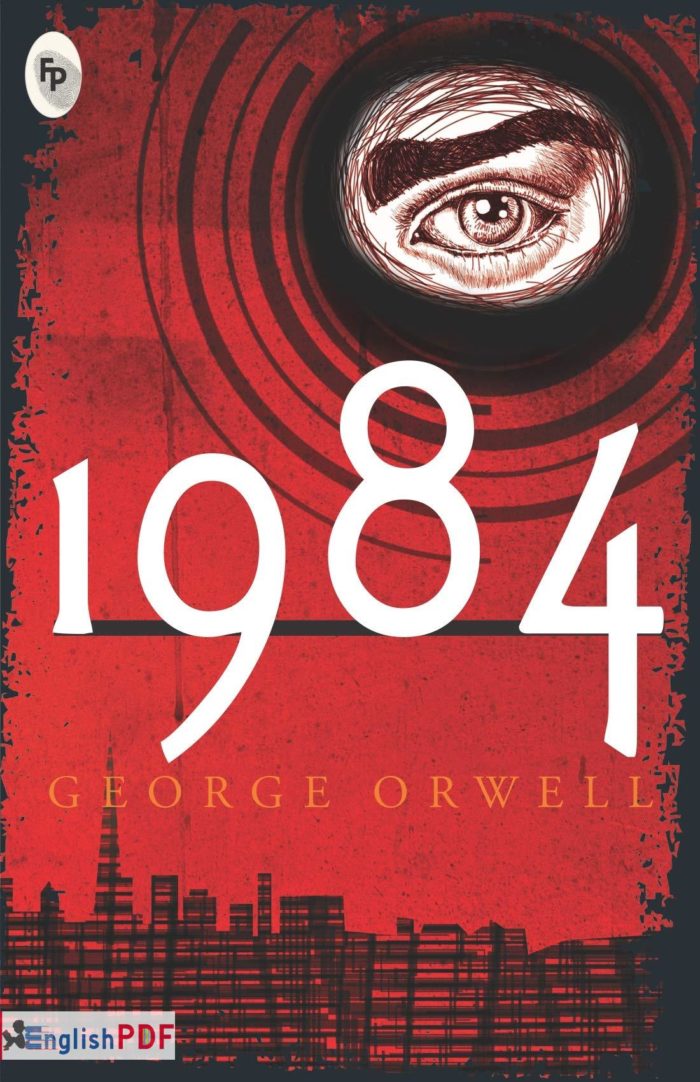| 📚 Book Name | 1984 |
|---|---|
| 👨🏫 Author | George Orwell |
| 📄 Pages | 393 |
| 🏷️ ISBN | 978-0451524935 |
1984 by George Orwell: A Comprehensive Review
1984 George Orwell is a seminal piece of dystopian literature that delves into the terrifying realities of totalitarianism. This profound narrative explores the bleak existence under oppressive regimes, illustrating the dire consequences of unchecked political power. Since its publication in 1949, 1984 has remained a cornerstone in the realm of political fiction, influencing countless discussions about freedom, privacy, and government control.
Summary of the Book 1984
1984 is set in a grim, dystopian future where the world is ruled by three totalitarian superstates. The protagonist, Winston Smith, lives in Oceania under the oppressive regime of the Party, led by the enigmatic Big Brother. The Party exerts absolute control over every aspect of life, employing propaganda, surveillance, and brutal punishment to maintain power. Winston, disillusioned by the pervasive oppression, begins to rebel against the Party, seeking truth and freedom. His illicit love affair with Julia and his eventual capture and torture by the Thought Police highlight the devastating power of totalitarianism.

About the Author George Orwell
George Orwell, born Eric Arthur Blair, was an English novelist, essayist, and critic renowned for his lucid prose and profound social commentary. Orwell’s works often explored themes of social injustice, totalitarianism, and democratic socialism. His experiences as a colonial police officer in Burma and a soldier in the Spanish Civil War profoundly influenced his political views, shaping his literary legacy. Orwell’s sharp observations and relentless critique of oppressive regimes have cemented his place as one of the most influential writers of the 20th century.
Topics Covered in the Book 1984
Totalitarianism and Oppression
In 1984, Orwell vividly depicts the mechanisms of totalitarian control, illustrating how the Party manipulates reality and suppresses dissent. Through propaganda, surveillance, and psychological manipulation, the Party ensures absolute loyalty and obedience.
Surveillance and Privacy
The omnipresent surveillance in 1984 serves as a chilling reminder of the dangers of state overreach. Telescreens, hidden microphones, and the Thought Police constantly monitor citizens, erasing any semblance of privacy and fostering a climate of fear.
Language and Thought Control
Orwell introduces the concept of Newspeak, a language designed to limit freedom of thought and expression. By reducing the complexity of language, the Party aims to eliminate rebellious thoughts and ensure ideological conformity.
Resistance and Rebellion
Winston’s journey represents the human spirit’s resilience and desire for freedom. Despite the overwhelming odds, his defiance highlights the innate longing for truth and individuality.
Famous Quotes by Writers
“War is peace. Freedom is slavery. Ignorance is strength.” – George Orwell, 1984
“Big Brother is watching you.” – George Orwell, 1984
“In the face of pain, there are no heroes.” – George Orwell, 1984
The Most Significant Comments and Opinions of Critics on the Book 1984
Critics have lauded 1984 for its prophetic insights and compelling narrative. Renowned critic Lionel Trilling praised Orwell’s “commitment to political decency,” while Margaret Atwood highlighted the novel’s “chilling relevance” to contemporary society. Many have noted the enduring significance of Orwell’s warnings about authoritarianism and the manipulation of truth.
Most Popular Similar Books
- Brave New World PDF by Aldous Huxley
- Fahrenheit 451 by Ray Bradbury
- The Handmaid’s Tale by Margaret Atwood
- We by Yevgeny Zamyatin
Most Significant Works by the Author George Orwell
- Animal Farm
- Homage to Catalonia
- Down and Out in Paris and London
- The Road to Wigan Pier
The Enduring Legacy of 1984
1984 remains a powerful and relevant work that continues to resonate with readers worldwide. Orwell’s chilling depiction of a totalitarian society serves as a stark warning against the dangers of oppressive regimes and the erosion of individual freedoms. The novel’s enduring impact underscores the importance of vigilance in safeguarding democracy and human rights. For those seeking a profound exploration of political power and its consequences, 1984 is an essential read.